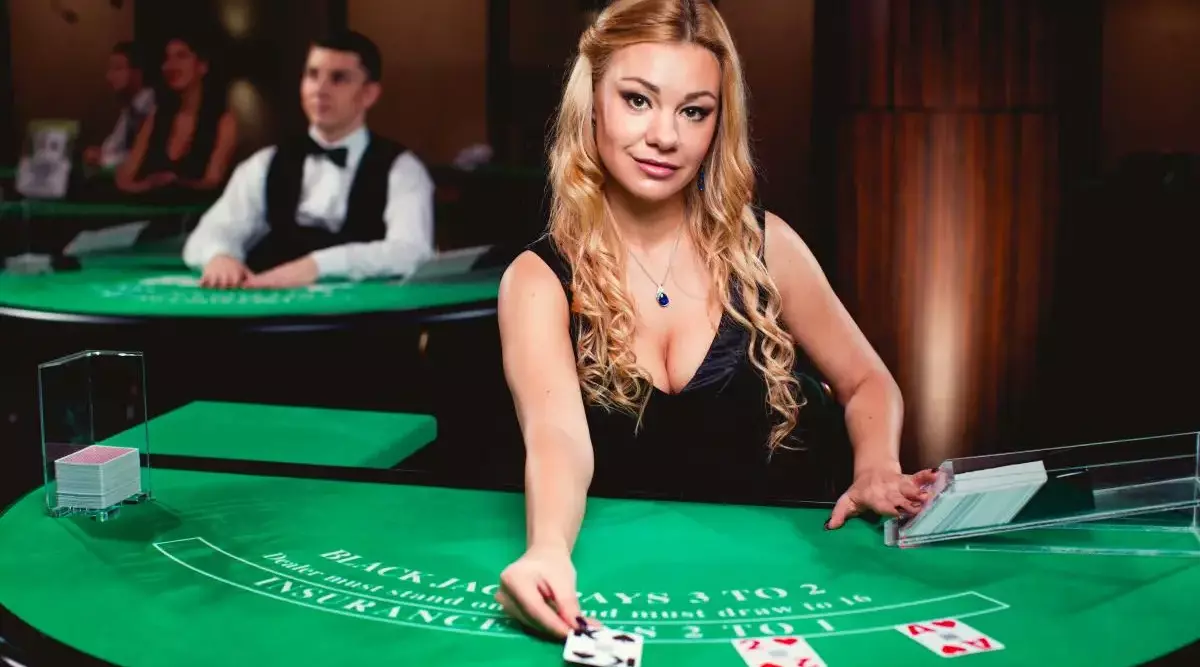When you visit an online casino, especially platforms offering real-time gameplay like Playzilla Casino, you’re experiencing something unique: a digital gaming environment combined with real human interaction. Unlike traditional online games that rely entirely on software, live casinos feature professional dealers managing tables via streaming video. Observing these dealers closely can offer insights that significantly impact your gaming strategy and experience.
Understanding body language—those subtle, often unconscious, physical cues people give—is key to improving your gaming experience. In this article, we explore the TOP-5 most revealing body language signals from live casino dealers. We’ll teach you how to read emotions effectively at tables like Blackjack, Roulette, Baccarat, and Poker, and explain how this skill could enhance your decision-making and increase your enjoyment of gaming.
Why Reading Body Language Matters
Playing at live casino tables isn’t just about understanding the game mechanics and rules; it’s also about grasping the human factor behind them. Live dealers, being human, naturally express emotions, intentions, and even subconscious thoughts through body language. Spotting these signals can help you predict dealer actions, better anticipate outcomes, and maintain emotional control in high-pressure situations.
By closely observing live dealers at platforms, you gain an advantage beyond traditional strategy—an intuitive sense for the game’s flow. Here’s what you need to know.
1. Eye Contact and Eye Movements
Direct Eye Contact: Confidence and Professionalism
When dealers maintain steady, confident eye contact with the camera (and thus with you), it signals professionalism and neutrality. Dealers trained by casinos strive to appear impartial and controlled. Strong eye contact typically suggests confidence in the dealer’s role, but can sometimes reflect a good hand in games involving hidden cards, such as Poker or Blackjack.
Frequent Eye Shifts: Nervousness or Uncertainty
Conversely, when dealers repeatedly glance away or shift their eyes quickly, it might indicate discomfort, uncertainty, or nervousness. This is particularly relevant in high-stakes scenarios or when mistakes have occurred.
How to Use This Information:
- A confident, steady gaze generally means the game is proceeding normally.
- Rapid blinking or frequent glancing might indicate tension, hinting it’s a good time to observe closely and reassess your bets.
2. Facial Expressions: Subtle Clues in the Face
Genuine Smiles vs. Forced Smiles
Dealers are professionally trained to remain cheerful and welcoming. However, you can distinguish genuine happiness from forced politeness by watching closely:
- Genuine smiles involve crinkling around the eyes (“crow’s feet”). They often mean the dealer feels relaxed and comfortable with the current table flow.
- Forced smiles appear stiff or limited to the mouth area. These indicate stress, discomfort, or dissatisfaction, perhaps due to a complicated game situation or player conflict.
Raised Eyebrows and Surprise
Raised eyebrows often signal surprise or interest. For example, in Poker, a dealer’s brief eyebrow raise could hint at an unexpected outcome. However, professional dealers generally control this reaction, so catching this subtle cue can be significant.
How to Use This Information:
- Genuine smiles suggest a smooth game flow.
- Forced smiles or tense facial expressions could indicate the dealer feels pressured or uncertain—potentially valuable insights if you’re deciding whether to change your strategy.
3. Hand Movements and Gestures
Steady Hands: Calmness and Control
A live dealer’s hand movements are among the most revealing cues in a live casino. Dealers with steady hands typically indicate calmness and experience. Steady, deliberate motions suggest the dealer is comfortable managing the table, which often results in fair and consistent gameplay.
Shaking or Twitchy Hands: Nervousness
When a dealer’s hands shake or move quickly, it might reflect nervousness or tension. This could happen due to technical issues, complex payouts, or player dissatisfaction. Even highly-trained dealers at reputable platforms may occasionally display minor hand tremors during tense or complex situations.
How to Use This Information:
- Smooth, controlled hand gestures typically indicate reliable gameplay conditions.
- Twitchy or shaky hands can warn you to double-check your bets or proceed cautiously, as the dealer might be handling unexpected complications.
4. Posture and Body Positioning
Open Posture: Comfort and Confidence
Dealers who maintain an upright and open posture reflect professionalism and ease. They sit or stand with shoulders back and chest open, indicating they feel secure in their role. This suggests reliability, confidence, and fairness at the table.
Closed or Slumped Posture: Tiredness or Stress
If a dealer appears hunched over, with shoulders forward or arms crossed, this signals fatigue, discomfort, or stress. Although reputable casinos ensure dealers have appropriate breaks, extended sessions or challenging player interactions can still affect dealer posture.
How to Use This Information:
- Open posture typically suggests the dealer is alert and managing the table effectively.
- Closed or slouched posture can indicate the dealer’s fatigue or stress, possibly affecting game flow. If you notice this repeatedly, you might adjust your betting rhythm accordingly.
5. Speech Patterns and Vocal Cues
Clear, Consistent Voice: Stability
Dealers with clear, steady speech generally signal confidence and stable control of the game. They announce bets, results, and instructions firmly and without hesitation. This clarity reassures players and ensures a smooth, enjoyable gaming experience.
Hesitation or Voice Pitch Changes: Anxiety
Conversely, changes in vocal pitch, hesitation, or stammering might suggest anxiety or uncertainty. This can occur during difficult situations, such as handling large payouts, disputes, or technical glitches. Even professional dealers at casinos might momentarily show these cues under pressure.
How to Use This Information:
- Consistent, confident speech reassures you of fair gameplay.
- Frequent hesitations or voice instability may suggest that something unusual is happening, warranting your careful attention.
How to Apply Body Language Reading
Reading a dealer’s body language doesn’t mean you can predict exact outcomes of casino games—cards and roulette wheels remain fundamentally random. However, these cues provide important context about game dynamics, dealer comfort, and table atmosphere.
Practical Tips:
- Pay attention to changes: Sudden shifts in body language are more revealing than consistent signals.
- Use observations for strategy: If you sense tension or confusion, pause before placing large bets.
- Balance intuition with rational gameplay: Body language is helpful, but it shouldn’t replace solid betting strategies and bankroll management.
Ethical Considerations and Respecting the Dealer
Remember, live dealers and other platforms are professionals performing under scrutiny. They strive to deliver a positive, fair, and enjoyable gaming experience. While reading their emotions can enhance your gameplay, it’s essential to remain respectful, avoiding overly personal comments or attempts to manipulate.
How Casino Supports Fair Play Through Dealer Training
Reputable online casinos invest heavily in dealer training to ensure impartiality and professionalism. Dealers undergo extensive coaching to manage stress, maintain composure, and interact fairly and respectfully with players. Despite this training, they remain human, naturally expressing subtle emotions that observant players can detect.
Final Thoughts: Mastering the Art of Reading Dealer Body Language
Mastering the skill of reading dealer emotions can significantly enhance your live casino experience. By observing subtle cues like eye contact, facial expressions, hand gestures, posture, and vocal patterns, you gain deeper insights into the gameplay dynamics at platforms.
This heightened awareness not only enriches your enjoyment but also supports better-informed betting decisions, strategic adjustments, and overall confidence during play.

